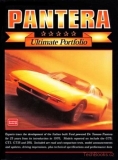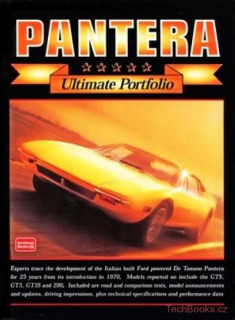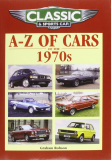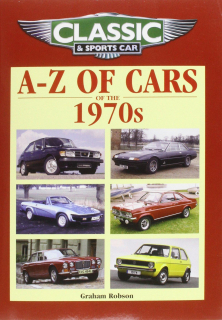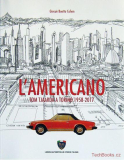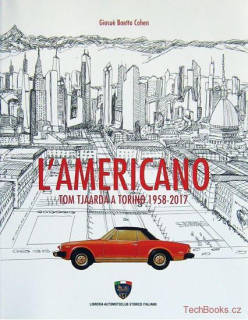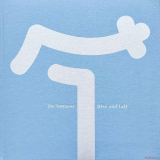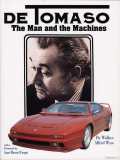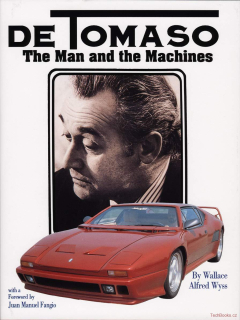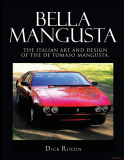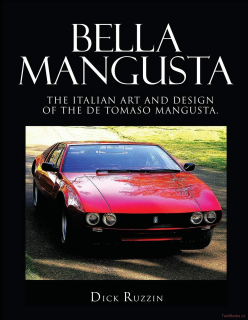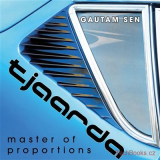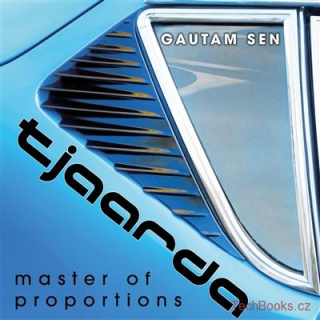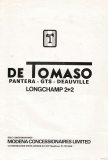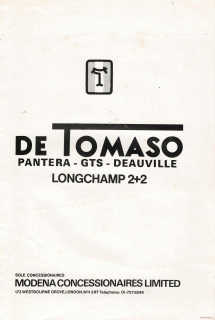E-shop
- * CD/DVD/BLU-RAY
- * Dárkové poukazy
- * Kalendáře
- * Magazíny
- * NAVIONICS
- * Plakáty a grafické listy
- * Prospekty a brožury
- * Slovníky
- ATV, čtyřkolky, sněžné skůtry
- Autobusy, tramvaje, trolejbusy
- Automobily osobní a dodávky
- _Automobilová technika
- _Autokatalogy
- _Caravaning
- _Design
- _Elektromobily & hybridy
- _Karosárny & karosáři
- _Osobnosti & konstruktéři
- _Repliky / kitcars / stavby
- _Sbírky a muzea
- _Sport
- _Veteráni
- Abarth
- AC
- Acura
- Adler
- Aero
- Africar
- Alfa Romeo
- Allard
- Allstate
- Alpine
- Alvis
- AM General
- AMC
- Americké automobily
- Armstrong Siddeley
- ARO
- ASA
- Aston Martin
- Auburn
- Audi
- Austin
- Austin-Healey
- Austro-Daimler
- Auto Union
- Autobianchi
- Ballot
- Bantam
- Barkas
- Bedford
- Bentley
- Benz
- Berkeley
- Bitter
- Bizzarrini
- BMW
- Bond
- Borgward
- Brabham
- Bricklin
- Bristol
- British Leyland
- BRM
- Brough Superior
- BSA
- Bugatti
- Buick
- Cadillac
- Callaway
- Caterham
- Citroen
- Cisitalia
- Clan
- Colt
- Cord
- Crosley
- Crossley
- Cunningham
- Dacia
- Daewoo
- DAF
- Daihatsu
- Daimler
- Dallara
- Darracq
- Datsun
- De Dietrich
- De Dion
- Delage
- Delahaye
- DeLorean
- Denzel
- DeSoto
- De Tomaso
- Diatto
- Dixi
- DKW
- Dodge
- Duesenberg
- Eagle
- Edsel
- Elva
- EMW
- ERA
- Excalibur
- Facel Vega
- Falcon
- Ferrari
- Fiat
- Ford
- Ford USA
- Frazer-Nash
- FSO Fiat Polski
- General Motors
- Genesis
- Geo
- Ginetta
- Gilbern
- Glas
- GMC
- Goggomobil
- Goliath
- Gutbrod
- Hanomag
- Hartnett
- Healey
- Henney
- Hillman
- Hino
- Hispano Suiza
- Holden
- Hommell
- Honda
- Horch
- Hotchkiss
- Hudson
- Humber
- Hummer/Humvee
- Hyundai
- Checker
- Chevrolet
- Chrysler
- Chrysler Europe
- IFA
- Imperial
- Ineos
- Infiniti
- Innocenti
- Intermeccanica
- International
- Invicta
- ISO
- Isotta-Fraschini
- Isuzu
- Itala
- Iveco
- Jaguar
- Jeep
- Jensen
- Jowett
- Kaiser-Frazer
- Karmann
- KdF
- Kia
- Lada/VAZ
- Lagonda
- Lamborghini
- Lancia
- Lanchester
- Land Rover
- Laurin-Klement
- La Salle
- Lea-Francis
- Lexus
- Light Car Co.
- Ligier
- Lincoln
- Lloyd
- LMX
- Locomobile
- Lola
- London Taxi Intl.
- Lotus
- Marendaz
- Marcos
- March
- Marmon
- Maserati
- Matra-Simca
- Maybach
- Mazda
- McLaren
- Mercedes-Benz
- Mercury
- Messerschmitt
- Metalex
- MG
- Mini
- Mitsubishi
- Monica
- Monteverdi
- Moretti
- Morgan
- Morris
- Moskvič
- Muntz
- Nash
- Nissan
- Noble
- NSU
- Oldsmobile
- Oltcit
- Opel
- OSCA
- Packard
- Pagani
- Panhard
- Panoz
- Panther
- Peerless
- Pegaso
- Peugeot
- Park Ward
- Pierce-Arrow
- Plymouth
- Pontiac
- Porsche
- Praga
- Puch
- Puma
- Rambler
- Range Rover
- Reliant
- Renault
- Proton
- Railton
- Riley
- Riva
- Rochdale
- Rolls-Royce
- Rover
- Röhr
- Saab
- Saturn
- Scioneri
- Seat
- Shelby
- Schustala
- Simca
- Singer
- Smart
- Spyker
- Standard D
- Standard GB
- Stanguellini
- Steyr
- Studebaker
- Subaru
- Stutz
- Sunbeam
- Suzuki
- Swallow
- Syrena
- Škoda
- Talbot
- Tarpan
- Tatra
- Terraplane
- Tesla
- Tojeiro
- Toyota
- Trabant
- Trident
- Triumph
- Tucker
- TVR
- Tyrrell
- UAZ
- Unipower
- Vanwall
- Vanden Plas
- Vauxhall
- Vector
- Venturi
- Voisin
- Volha / GAZ / Čajka
- Volkswagen
- Volvo
- Walter
- Wanderer
- Wartburg
- Warszawa
- Wiesmann
- Wikov
- Westfield
- Williams
- Willys
- Wolseley
- Yugo/Zastava
- Zagato
- ZAZ
- Zbrojovka
- ZIL
- Zimmer
- Automobily nákladní a tahače
- Cyklistika
- Hudební nástroje, hudba
- Letectví, kosmonautika
- Lodě, lodní technika
- Malá motorová technika
- Modely a sběratelství
- Motocykly
- Počítače, IT
- Traktory, zemědělská technika
- Železniční technika, vlaky
- Zbraně, vojenská technika
- Zdraví, domácnost, sport


![]()



![]()


![]()

![]()

![]()



Úvod »Automobily osobní a dodávky»ZIL » De Tomaso - Racing Blue Blood
Anotace
| Vazba: | Vázaná | ||
| Počet stran: | 458 | ||
| Rozměry v mm: | 280 x 310 | ||
| Počet obrázků: | 433 | ||
| Rok vydání: | 2024 | ||
| Přebal: | Papírové pouzdro | ||
The De Tomaso marque was immortalised by the Pantera, but De Tomaso’s story has a lot more to tell. It starts with the 1959 US Grand Prix, when Alejandro de Tomaso raced his first self-built single seater, and continues with the development of race cars for multiple entries in Formula 1 (1961-1963, 1970), Formula 2, Formula 3, Formula Junior, and the production of amazing designs for racing sportscars, Indianapolis and Can-Am cars, and GTs. The company gradually morphed into road car manufacturing, producing icons like the Vallelunga, the Mangusta, and the different iterations of the Pantera, including the powerful Group 4 that roared at Le Mans as well as most of the European long-distance races. Alejandro de Tomaso´s life was a journey in search of success by using innovation and experimental technical solutions, with examples like the use of a central spine chassis, casting parts and monocoques with light materials, or building his own engines. All this before moving towards the construction of an empire that included Ghia, Vignale, Maserati, Innocenti, Benelli and Moto Guzzi.
With over 430 images – many of them in a strikingly large format – this book is based on years of research into the work of the most recognised De Tomaso specialists. It includes examples from their unique private collections taken from the factory archives, including contracts, correspondence, photographs, and original drawings that describe all the cars and projects produced between 1959 and 2003. From the marque´s early ISI cars and racing sportscars, to the exotic Guará barchetta, it throws light on projects that had little or no visibility to the general public, like the 2000 GT that predated the Vallelunga, the Can-Am cars, the Chrysler version of the Pantera II, or the Nuova Vallelunga designed by Enrique Scalabroni, amongst others. This research has the most detailed account of production figures and chassis numbers for race and road cars – all based on the surviving handwritten factory records – and there is an unprecedented racing appendix with details of over 1100 race entries.










